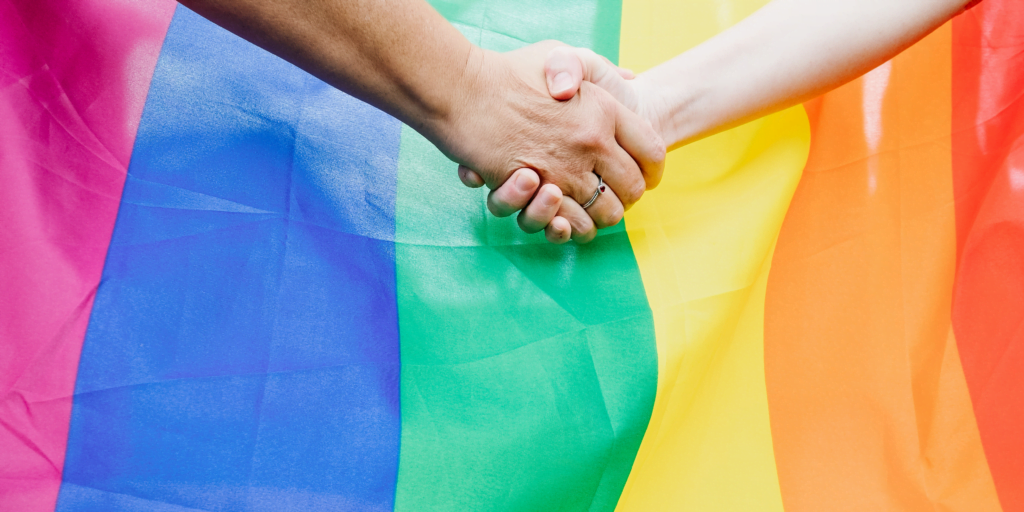A LGBTIQA+ Family Resource with Rachel Flottman from Ethical Interactions
“An ally is when a person uses their position in society to counter discrimination of marginalised groups” (University of Melbourne, 2022)
Ethical Interactions is a Melbourne-based early childhood consultancy which uses co-design methodologies to design professional learning programs for professionals and advocate for children and their families.
About 4% of the Australian community identifies as LGBTIQA+ and family diversity is becoming more visible with changes to the Marriage Equality (Same Sex) Act (2013), easier access to assisted reproductive technologies, and general evolution in culture and society. There has been a 5-fold increase in the number of families that identify as having members with diverse genders or sexualities since 2010 (ABS, 2021).
Ethical Interactions is using its co-design expertise and connection to LGBTIQA+ cultures to develop a Toolkit of resources to support early childhood services be more of what LGBTIQA+ families want them to be: respectful, representative, welcoming, inclusive and safe.
The Toolkit is being supported through the Victorian School Readiness Funding initiative and Queensland Kindy Uplift initiative, and will be available Australia-wide.
We brought together knowledge and perspectives of LGBTIQA+ family members and early childhood professionals to create a resource that is useful for professionals, and informed by families.
Our professionals have overwhelmingly indicated support for including LGBTIQA+ families in their services, however are hesitant because of a self-identified fear and lack of knowledge. Professionals reported they are afraid of offending LGBTIQA+ folk by saying the wrong thing or that other families will think that LGBTIQA+ visibility is too ‘adult’ for children. They also report a lack of understanding, or peers’ understandings that lead to them not making LGBTIQA+ cultures as visible as others.
Our families have shown us that they are each as different as members within any other culture, but have told us that Cultural Safety is essential to feeling respected, represented, welcome, included and safe in early childhood services. They have told us that services can provide cultural safety by:
- Intervening when other families or professionals use homophobic or transphobic language, comments or behaviour in the service.
- Knowing the unique ways each child refers to their parent(s) within each family.
- Having a good selection of books, posters and other displays representing family diversity.
- Review all policies, procedures, forms and their philosophy to promote inclusion and use gender neutral language and that which doesn’t assume family structure.
- Consulting with them on celebrations for Mothers’ Day and Fathers’ Day (and making sure to include non-binary parents in these celebrations)
- Asking broad questions such as “What are your goals for your child?”, “How do you want your child and your family to feel at the service”, “How can we make sure this happens?”, “Is there anything you’d like me to know about you, your child and your family?”. And, to be honest, we should ask this of EACH family.
We would love you to complete our surveys, and forward them to friends, family and colleagues who are part of the Rainbow Community, or work in early childhood services. Our surveys will be open until mid-December. Your privacy will be protected, and we will send you our e-resources once we complete the Toolkit to thank you for your participation.
QR code for Family survey and link https://www.surveymonkey.com/r/LGBTIQAFAMILY

QR code for EC Professional survey and link https://www.surveymonkey.com/r/LGBTIQAINCLUSION

The Toolkit will be available on our website www.ethicalinteractions.com from March 2023, and curated content will be released on Instagram @ethical_interactions, as well as key work from other co-designed projects within early childhood.
About Rachel Flottman
Rachel has over 15 years’ experience working in early childhood policy, research and practice. She works in ways that are sensitive and responsive to young children’s emotional and intellectual capacities. She is particularly interested in using methods that gather children’s perspectives in ethical ways to inform decisions about matters that affect them. She views children as powerful and agentic and as holding equal value to others in the community. Central to her work is the principle that children are simultaneously capable, and vulnerable. She is continually engaged in critical reflection about the most ethical ways to balance children’s rights with their needs to be protected. Rachel enjoys working with teachers and educators as an active and equal partner co-constructing approaches that work for local contexts. She brings deep knowledge of theory and research and collaborated with teams’ deep knowledge of their community and local context to create excellent pedagogy, programs and environments. She worked closely on the development of the Early Years Learning Framework and led the development of the Victorian Early Years Learning and Development Framework (2009). Later, she supported the design of School Readiness Funding in Victoria.


